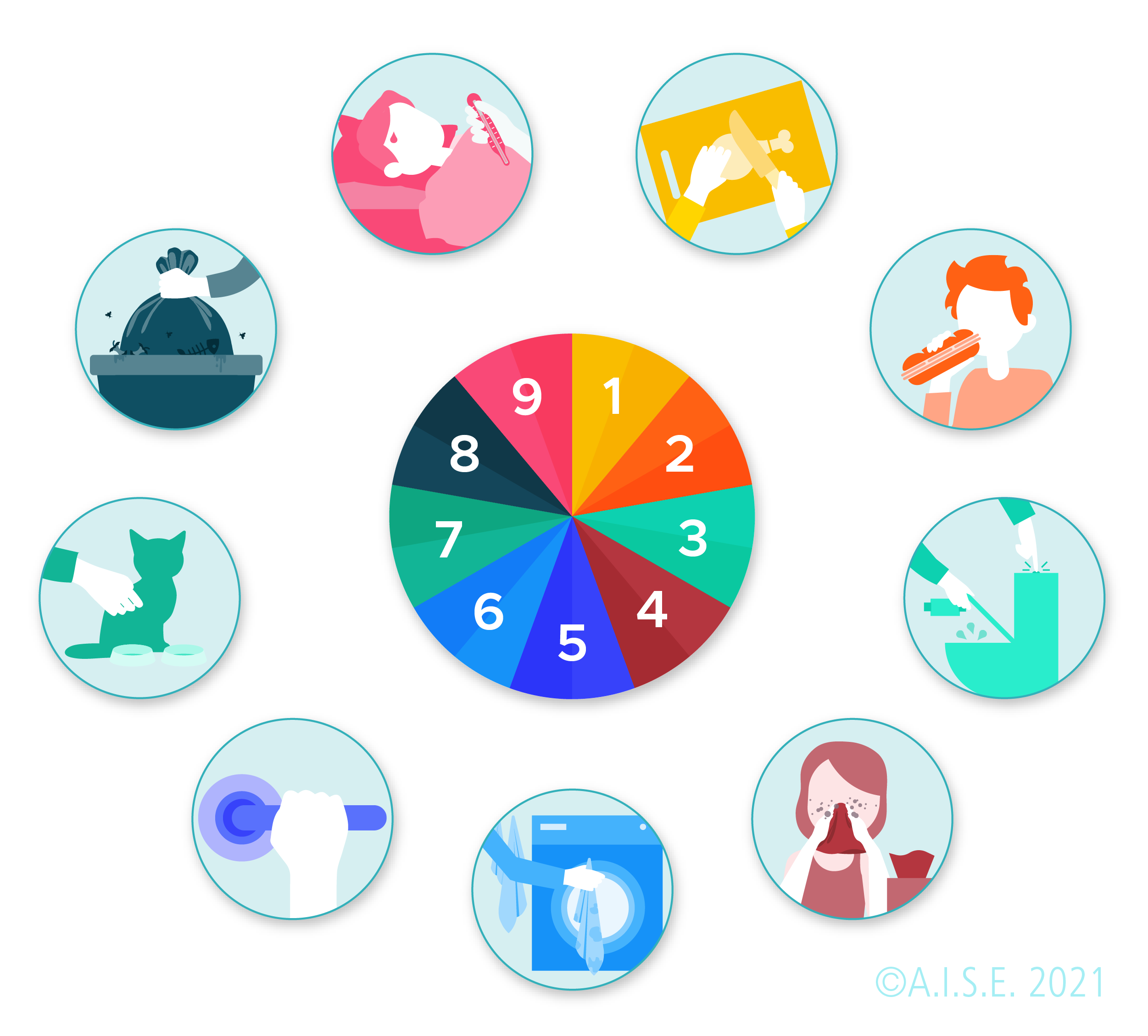
On World Hand Hygiene Day, 5 May 2021, A.I.S.E. wishes to emphasise the critical role that hygiene plays to help prevent the spread of infectious diseases and promotes
‘Targeted Hygiene’, focusing hygiene practices at the places and the moments that matter. There are nine key moments for Targeted Hygiene, and our hands play a critical role in each of these moments.
Consumer data show that, even though the COVID-19 pandemic provided an unprecedented opportunity for hygiene promotion, there was little evidence that public messaging altered consumers’ perception of risk and hygiene behaviours. In June 2020, only 44% of EU citizens felt that not washing their hands with soap after sneezing into them posed a high risk of causing infection, and only 36% claimed that they would always wash them afterwards.

A.I.S.E. compiled data from 4500 consumers in Europe in February 2020 as part of its triennial survey of behaviours and perceptions, and partially re-ran the survey in June 2020, to establish whether and to what extent attitudes and understandings of cleanliness and hygiene may have changed during the COVID-19 pandemic. A summary in infographics of the A.I.S.E. consumer habits survey 2020 is available below.
On 7 April 2021, A.I.S.E. and IFH released a joint industry / academia report entitled ‘Developing household hygiene to meet 21st century needs’. The report is the result of a long collaboration between the detergents industry and the International Scientific Forum on Home Hygiene, and includes a foreword by Professor Didier Pittet, Director of the Infection Control Program at the University of Geneva Hospitals and Faculty of Medicine in Geneva, Switzerland, and adviser to the World Health Organization.
Professor Pittet is the driver behind the WHO campaigns for clean hands - in his foreword he writes: "If we are to adequately address the infectious disease issues we now face, we must ensure that hygiene in our homes and in our everyday lives is recognised as an equal partner to hygiene in healthcare and other settings, and pay greater attention to improving hygiene understanding and hygiene behaviour.”
Download